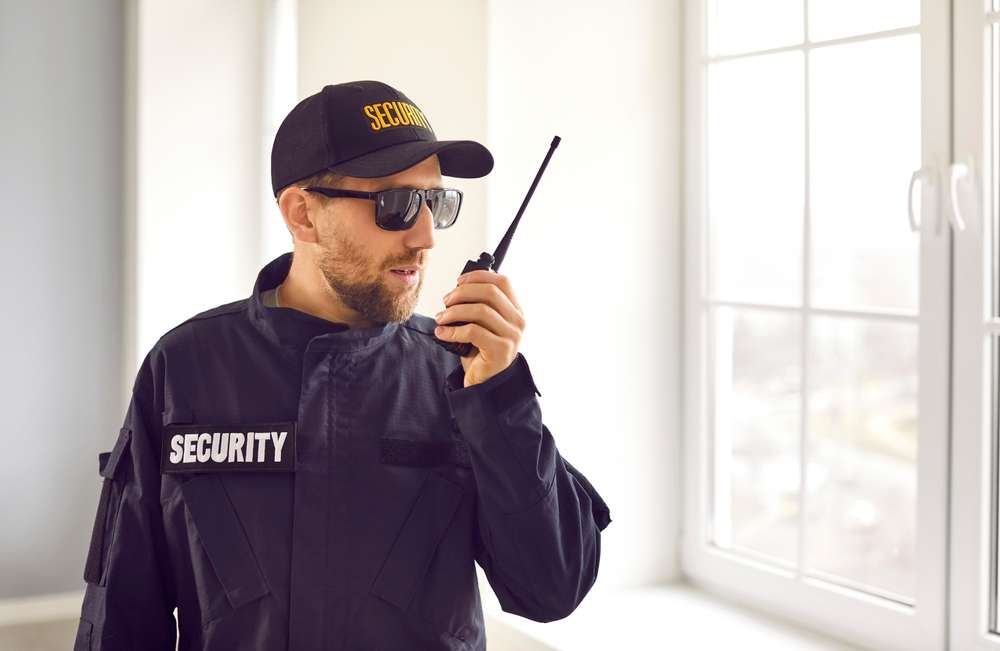Comprehensive Guide to Certified Security Guard Training
Security guard certification provides a pathway to a stable career in the protective services industry. As businesses and organizations increasingly prioritize safety, the demand for properly trained security personnel continues to rise. This comprehensive guide examines the essential requirements, training pathways, and certification processes needed to become a qualified security professional. Whether you're new to the industry or looking to advance your security career, understanding the certification landscape is crucial for success in this growing field.

How to Become a Certified Security Guard
The journey to becoming a certified security guard involves several key steps that vary by location but generally follow a similar pattern. Most jurisdictions require candidates to be at least 18 years old with a clean criminal record. The certification process typically begins with a background check, which may include fingerprinting and criminal history verification. After clearing initial screenings, candidates must complete mandatory training hours that cover essential security concepts, legal responsibilities, emergency procedures, and conflict de-escalation techniques.
Training requirements vary significantly by region, with some requiring as few as 8 hours of instruction while others mandate 40+ hours before certification. Upon completing the required training, candidates must pass an examination that tests their knowledge of security procedures, legal aspects, and professional conduct. Once certified, many jurisdictions require security guards to complete regular refresher courses to maintain their credentials, typically every 2-3 years.
Finding Government Approved Security Guard Training
Security guard training must meet strict standards set by regulatory bodies to ensure quality and consistency. Government-approved training programs are typically offered through licensed security companies, vocational schools, community colleges, and specialized training academies. These programs follow a curriculum that covers mandated topics including legal powers and limitations, emergency response protocols, surveillance techniques, and report writing.
Before enrolling in any program, verify its accreditation status with your local licensing authority or department of public safety. Government-approved courses will provide certification that is recognized by employers and meets legal requirements for licensure. Many jurisdictions maintain online databases of approved training providers, making it easier to identify legitimate programs. These approved courses often include both classroom instruction and practical exercises to ensure comprehensive preparation for real-world security situations.
Online Security Certification Options
The security industry has embraced digital learning, with many jurisdictions now accepting online training for at least a portion of certification requirements. Online security certification programs offer flexibility for working professionals or those with scheduling constraints. These virtual courses typically cover theoretical knowledge components such as legal aspects, documentation procedures, and security concepts.
Most reputable online programs combine self-paced learning modules with virtual instructor interactions and timed assessments. While online training provides convenience, be aware that many jurisdictions still require in-person components for practical skills assessment and final examinations. When choosing an online program, verify that it meets your state or regional requirements for certification and that the credentials will be recognized by potential employers. Look for programs that offer technical support, instructor access for questions, and completion certificates that are accepted by licensing authorities.
Getting a Security Guard License Without Experience
Entering the security industry without prior experience is entirely possible through proper training and certification. Entry-level positions typically require completion of the basic mandatory training rather than previous work experience. Focus on obtaining your formal security guard training certificate first, as this credential demonstrates your foundational knowledge and commitment to the profession.
To strengthen your application without experience, consider pursuing complementary certifications in areas such as first aid, CPR, conflict resolution, or customer service. These additional qualifications can make your application more competitive. Many security companies offer on-the-job training programs for new hires, providing a pathway for inexperienced candidates to enter the field. When applying, emphasize transferable skills from previous employment or education such as attention to detail, communication abilities, and reliability.
Selecting Top Rated Security Guard Training Programs
When evaluating security training programs, several factors distinguish quality offerings from subpar options. Reputable programs typically maintain high completion and certification rates, with graduates successfully entering the workforce. Instructor qualifications are crucial—look for programs taught by experienced security professionals with backgrounds in law enforcement, military service, or extensive private security careers.
The curriculum should cover both theoretical knowledge and practical skills, including hands-on training for physical security techniques when appropriate. Quality programs often incorporate modern security technologies and methodologies rather than outdated practices. Consider asking potential training providers about their job placement assistance, as the best programs typically maintain relationships with security employers to help graduates find positions. Additionally, programs with smaller class sizes often provide more personalized instruction and higher student satisfaction.
Security Guard Training Costs and Providers
Security guard training costs vary widely based on location, program length, and included certifications. Basic certification programs typically range from $100-300 for mandatory training, while comprehensive programs with additional credentials can cost between $500-1,500.
| Training Provider | Basic Certification Cost | Program Features | Additional Certifications |
|---|---|---|---|
| Security Training Academy | $150-250 | 40-hour program, both online and in-person options | CPR/First Aid (+$75) |
| National Security Training | $200-350 | 60-hour comprehensive program with job placement assistance | Defensive tactics ($120), Firearms certification ($200-400) |
| Elite Guard Training | $100-175 | Basic entry-level 24-hour program | Access control systems ($150) |
| Guardian Security Institute | $275-400 | Premium 80-hour program with advanced tactics | Executive protection ($300-500) |
| Universal Security Education | $125-225 | Flexible schedule with weekend options | Conflict de-escalation ($100) |
Prices, rates, or cost estimates mentioned in this article are based on the latest available information but may change over time. Independent research is advised before making financial decisions.
The investment in quality security training typically pays dividends through better employment opportunities and higher starting wages. Many employers reimburse training costs for promising candidates or long-term employees seeking advancement. Some training providers offer payment plans or discounts for military veterans and law enforcement personnel. When evaluating program costs, consider the comprehensiveness of training and whether the provider includes study materials, uniform allowances, or certification exam fees in their quoted price.
Conclusion
Becoming a certified security guard requires dedication to completing the necessary training and licensing requirements. The certification process, while varying by location, provides essential knowledge and credentials that form the foundation of a security career. By choosing government-approved programs, considering online options when appropriate, and evaluating training providers carefully, aspiring security professionals can position themselves for success in this growing industry. Whether entering without experience or advancing within the field, proper certification remains the key to unlocking opportunities in the security profession.




